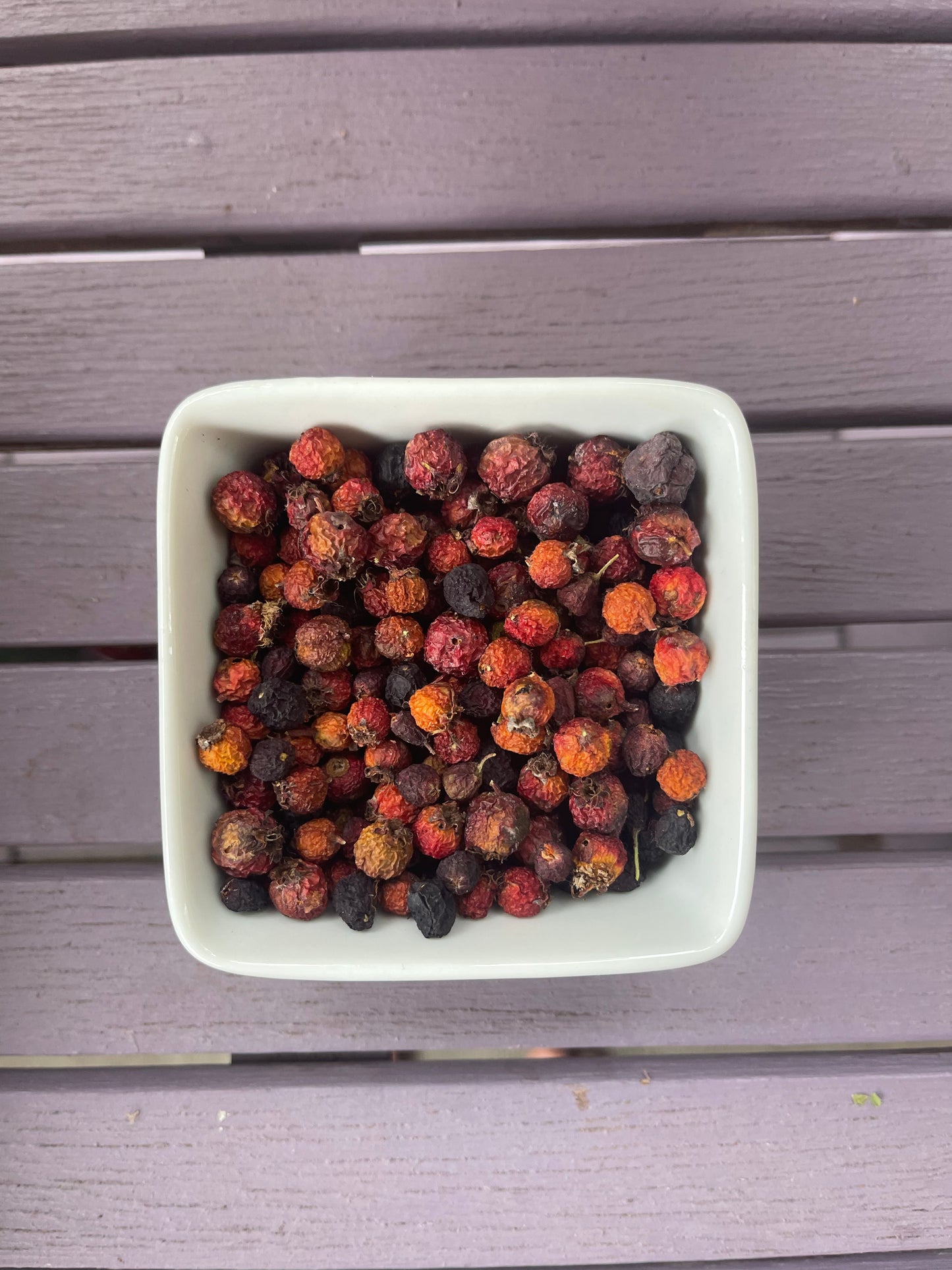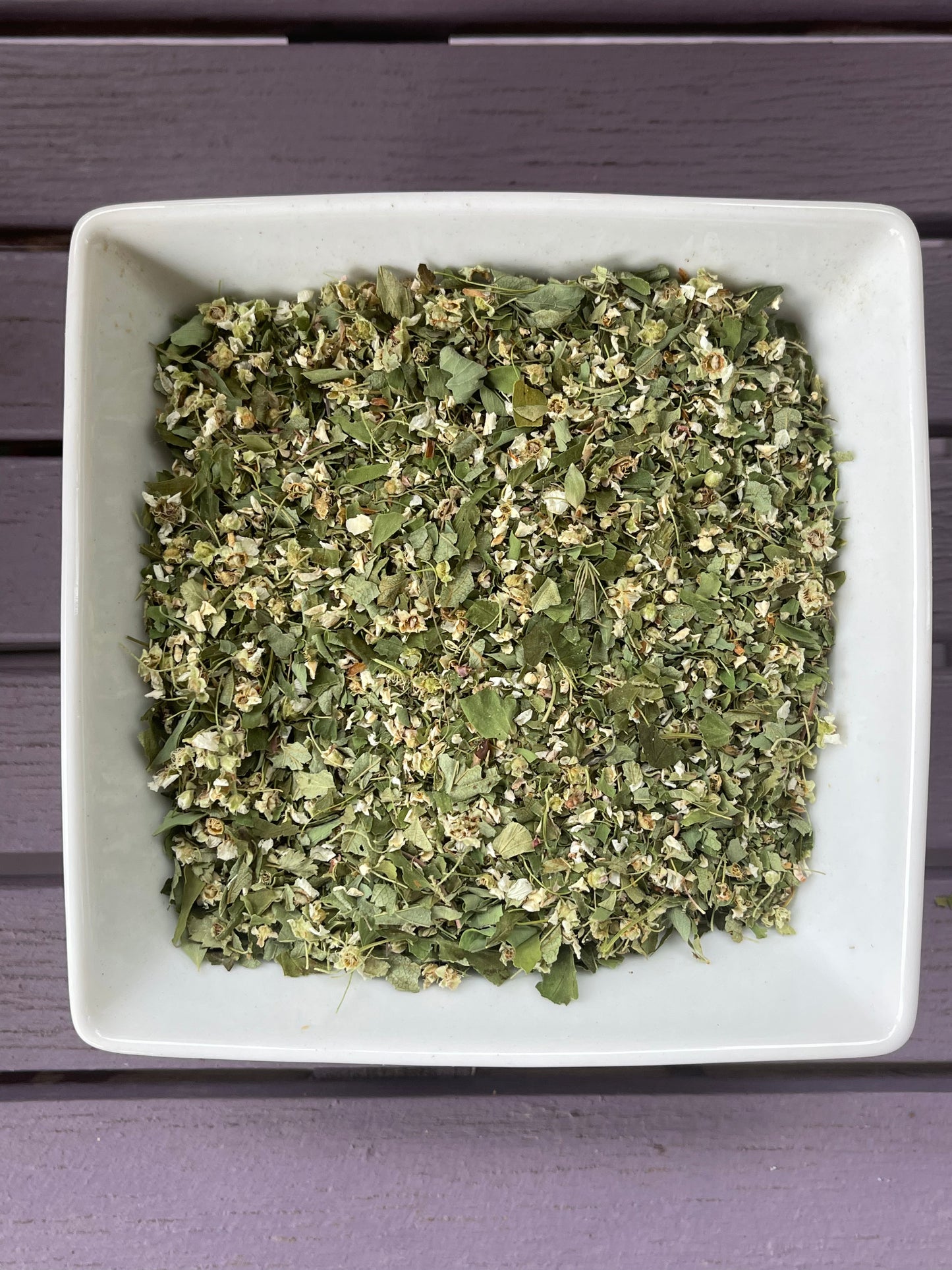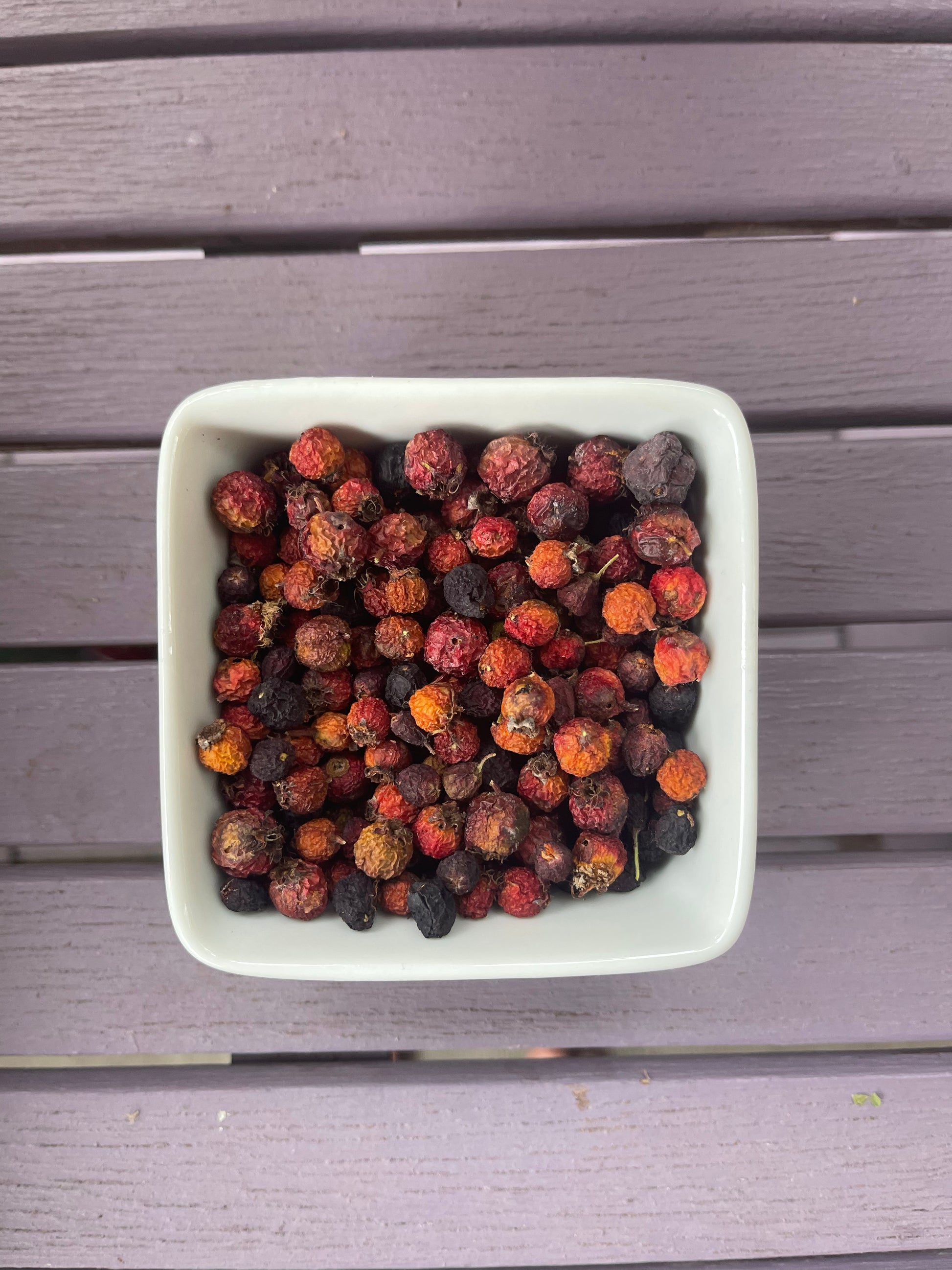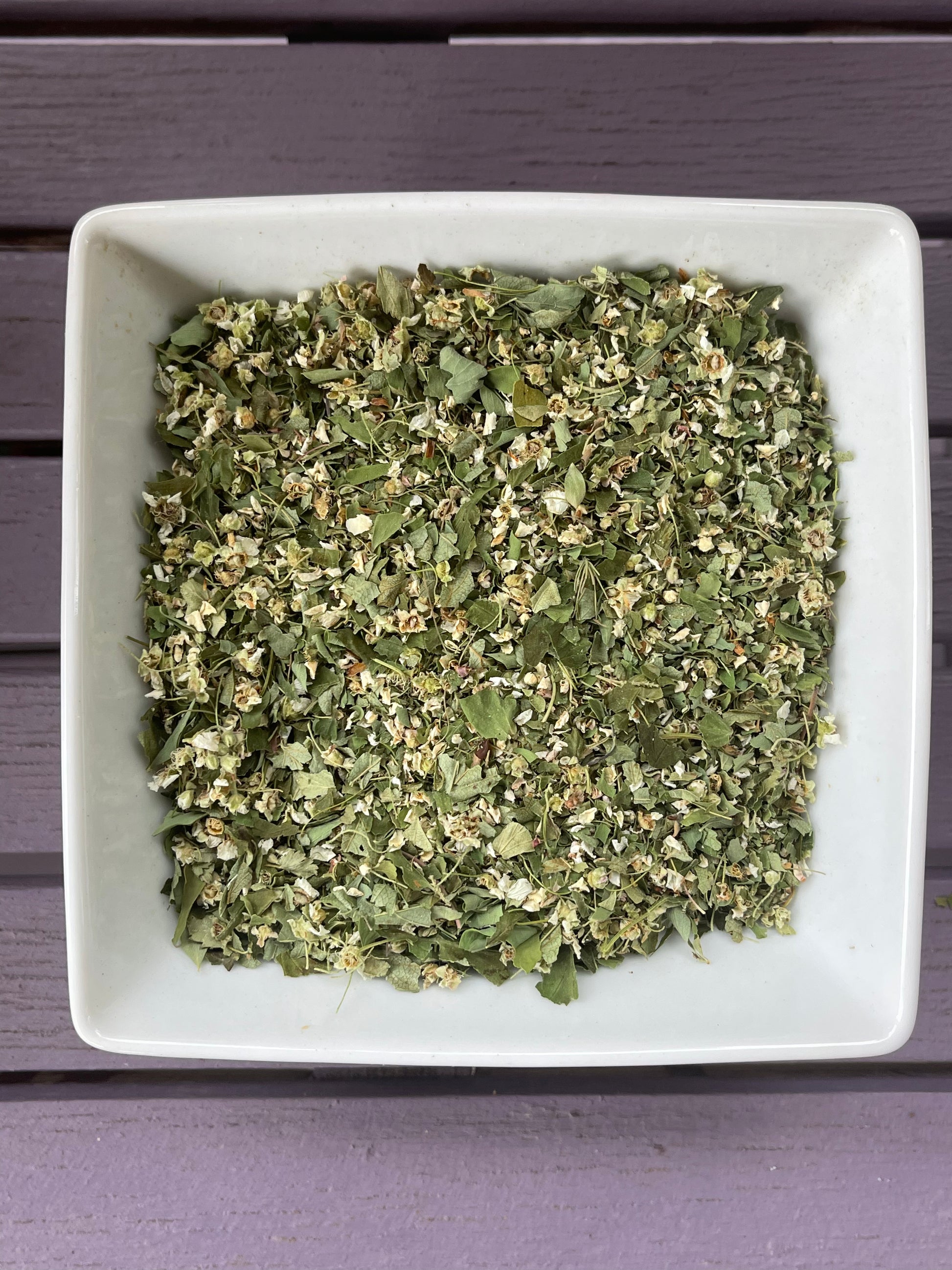GreenWitch Gardens Apothecary
Hawthorn dried bulk herb
Hawthorn dried bulk herb
Couldn't load pickup availability
Crataegus sp.
Note: Colorado has several species of hawthorn and I forage all of them, so you will find variation in berry color and size. They all serve the same.
Parts used: Leaf + flower + berry
per half oz
The true Queen of Hearts, hawthorn is the premiere medicine for heart health, physically and energetically. Physically, hawthorn targets all cardiovascular functions to get them working at their most optimum level. Hawthorn strengthens all the blood vessel walls and tones the heart muscle for more efficient contractions, improving circulation. Hawthorn also impacts cholesterol levels, helping to lower LDL and increase HDL cholesterol.
Energetically, hawthorn has an uplifting quality that nourishes the shen (spirit), helping us to move past grief and heartbreak. It can help us get out of the overthinking state and into the heart space. Like other rose family species, hawthorn’s energy medicine also helps us to hold strong boundaries, thus protecting us from heartbreak.
Note: Hawthorn has several other functions that will be added to this materia medica so stay tuned!
Actions: trophorestorative, mildly diuretic, astringent, nutritive, tonic
Energetics: cooling, moistening & drying
Constitution: hot, damp, dry
Flavor: sour, sweet
Organ & Tissue Affinity: heart, blood
GWG Favorite Preparations: tisane, tincture, culinary
Contraindications: hawthorn lowers blood pressure, so those who are hypotensive should use in moderation
Herb-Drug Interactions: consult your healthcare practitioner if you’re on blood pressure medication



